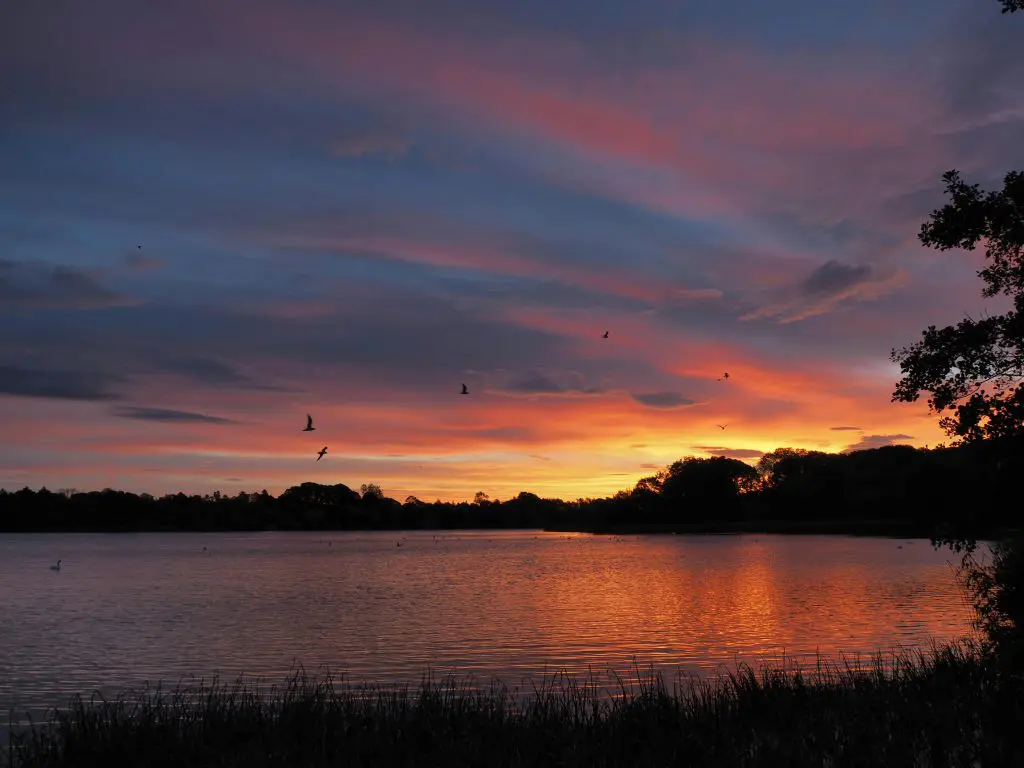
Lough Neagh One Year On: The 37-Point Plan and the Fight Against Ecological Decline A year after the launch of an ambitious 37-point plan to restore the ecological health of Lough Neagh, only 14 of the outlined measures have been implemented. The slow pace of progress comes at a critical time, as Northern Ireland’s largest […]
A year after the launch of an ambitious 37-point plan to restore the ecological health of Lough Neagh, only 14 of the outlined measures have been implemented. The slow pace of progress comes at a critical time, as Northern Ireland’s largest freshwater body continues to suffer from persistent pollution and the re-emergence of toxic blue-green algae.
This article examines what has been achieved, where the shortcomings lie, and why Lough Neagh remains a symbol of broader environmental and political challenges in Northern Ireland.
Lough Neagh, spanning five counties and supplying 40% of Northern Ireland’s drinking water, is experiencing a worsening ecological crisis. A combination of agricultural runoff, sewage discharge, and failing septic systems has created ideal conditions for cyanobacterial blooms—more commonly known as blue-green algae. These toxic blooms not only disrupt aquatic ecosystems but also pose risks to public health and local economies, particularly fishing and tourism.
In 2023, the then-newly appointed Agriculture and Environment Minister Andrew Muir introduced a 37-point action plan, backed by £12.8 million in capital funding. The goal was to curb pollution, improve water quality, and tackle the root causes of eutrophication. Yet, twelve months later, only 14 of the 37 actions have been implemented.
Among the implemented actions are short-term and medium-term interventions, including:
Deployment of public warning signs by local councils near affected waterways.
Suspension of commercial eel fishing for the remainder of the 2025 season due to environmental concerns.
Some progress within the Nutrients Action Programme (NAP), aimed at reducing the use of phosphorus-heavy fertilisers.
The Department of Agriculture, Environment and Rural Affairs (DAERA) has acknowledged that concentrations of algae this year remain “significantly lower than the peak blooms” of 2023 and 2024. However, ten separate incidents of algal blooms have already been reported this year—five in July alone—underscoring the fragility of recent gains.
One of the primary obstacles is political resistance. A central plank of the 37-point plan—tightening restrictions on phosphorus-based fertilisers—has been rejected by the DUP, Sinn Féin, UUP, and TUV, all of whom voted against the proposed measures in the Assembly. This bipartisan opposition severely limits the government’s ability to implement science-based environmental reforms.
In addition, the complexity of governance in Northern Ireland, where many measures require Executive approval, further delays implementation. According to DAERA, there are “no quick fixes” and full recovery could take decades, given the scale and depth of the problem.
A critical but often overlooked aspect is the ownership of Lough Neagh. The bed and soil of the lough remain in private hands—owned by the Earl of Shaftesbury’s estate—limiting public or governmental control over some environmental interventions.
As highlighted in a Belfast Telegraph special feature, a sustainable solution will require a shared responsibility among landowners, farmers, local councils, environmental groups, and residents. The blue-green algae crisis is not just a consequence of environmental negligence, but also of fragmented oversight and a lack of coordinated, long-term planning.
The crisis at Lough Neagh serves as a microcosm of broader environmental governance challenges across Ireland. It highlights a recurring theme: policy proposals often fail to translate into action due to political disagreement, stakeholder fragmentation, or insufficient public engagement.
The lake is central not just ecologically but also culturally, economically, and socially. It supports industries from fishing to tourism and acts as a water source for nearly half the population of Northern Ireland. Its degradation has widespread implications.
As SDLP MLA Patsy McGlone put it, the return of toxic algae is “yet another clear warning” that the crisis is far from under control. His warning echoes the growing sentiment that delayed action risks irreversible harm—to the lough and to the communities it supports.
Rather than viewing Lough Neagh’s restoration as a series of isolated environmental tasks, it may be more productive to see it as a transformational project—one that requires:
Firm political leadership: Ministers and Assembly members must resist populist pressure and embrace scientifically informed regulations.
A transparent governance structure: Including a public body or trust empowered to coordinate restoration work across jurisdictional lines.
Community-led engagement: From farmers managing nutrient runoff to residents participating in clean-up initiatives, local buy-in is essential.
Lough Neagh sits at a critical junction. The 37-point plan, though well-intentioned and partially funded, has been stymied by politics, inertia, and fragmented responsibility. As we pass the one-year mark, it is clear that symbolic measures alone are no longer enough.
The path forward must be one of collective responsibility, informed by science, driven by communities, and enabled by government. If properly executed, Lough Neagh could become a blueprint for collaborative environmental recovery in Ireland. If not, it may stand as a cautionary tale of inaction in the face of ecological collapse.
Support local environmental organisations working around Lough Neagh.
Pressure your local representatives to back the Nutrients Action Programme.
Stay informed and share verified updates to increase public awareness.
The future of Lough Neagh isn’t just a matter of water quality—it’s a test of Ireland’s ability to confront environmental challenges with unity and resolve.
At All-Ireland Sustainability, we’re committed to building a greener, fairer island—together. Stay informed on the latest environmental initiatives, community action, and policy developments shaping sustainability across Ireland, North and South.
👉 Sign up for our newsletter today and be the first to hear about upcoming events, expert insights, and ways to get involved.
Whether you’re a seasoned advocate or just starting your journey, new members are always welcome—your voice matters.
Subscribe now and be part of the All-Ireland Sustainability network.